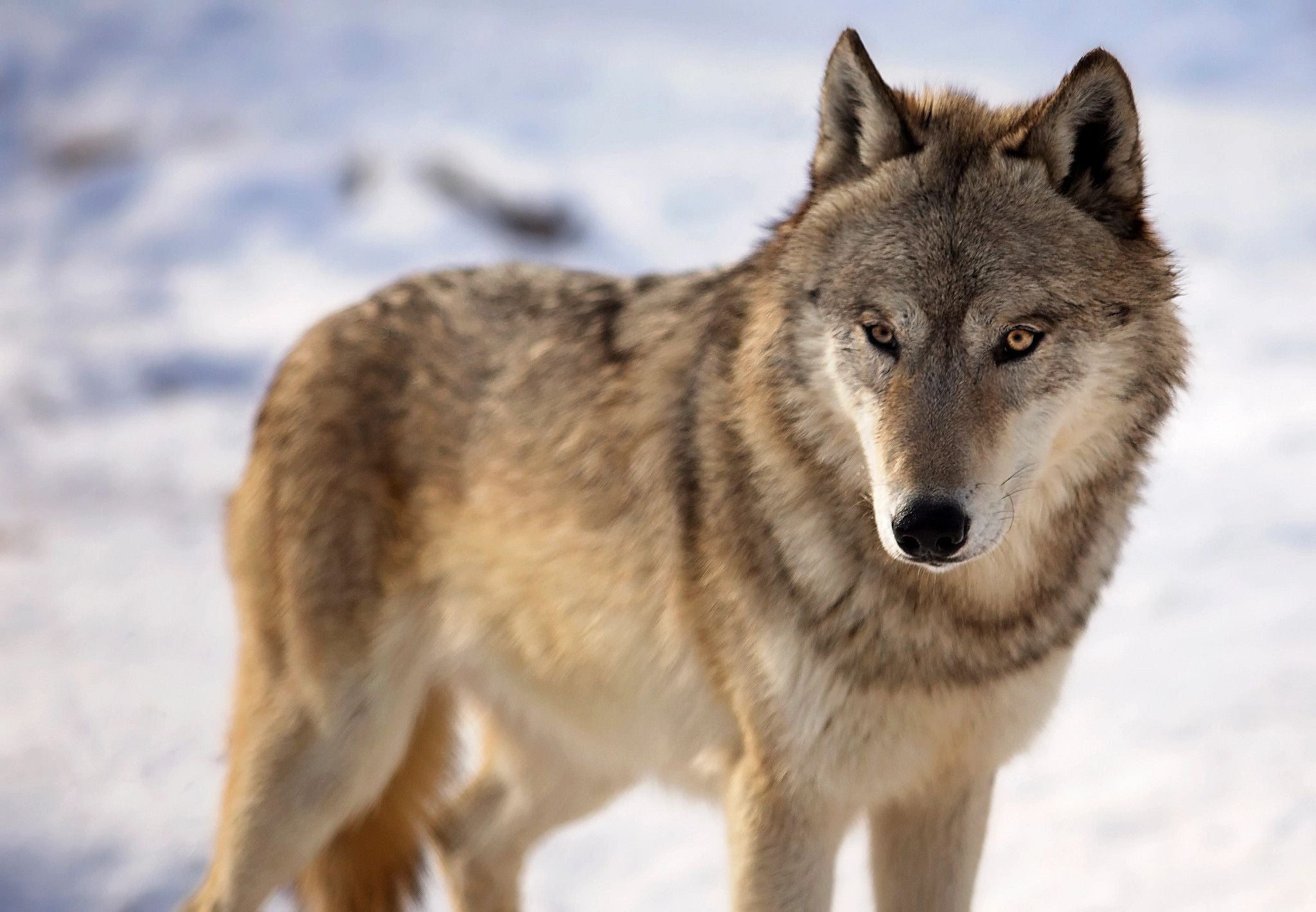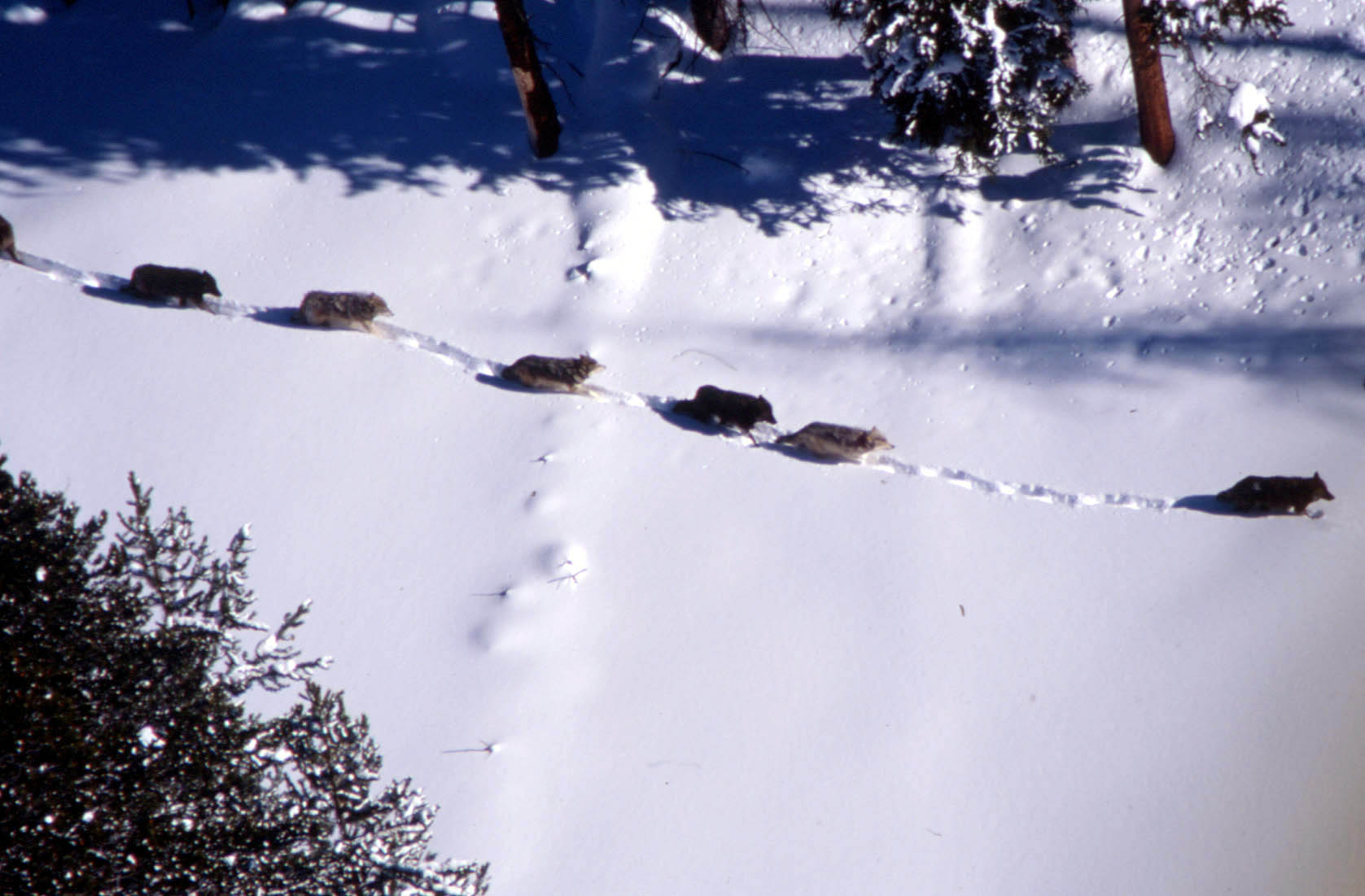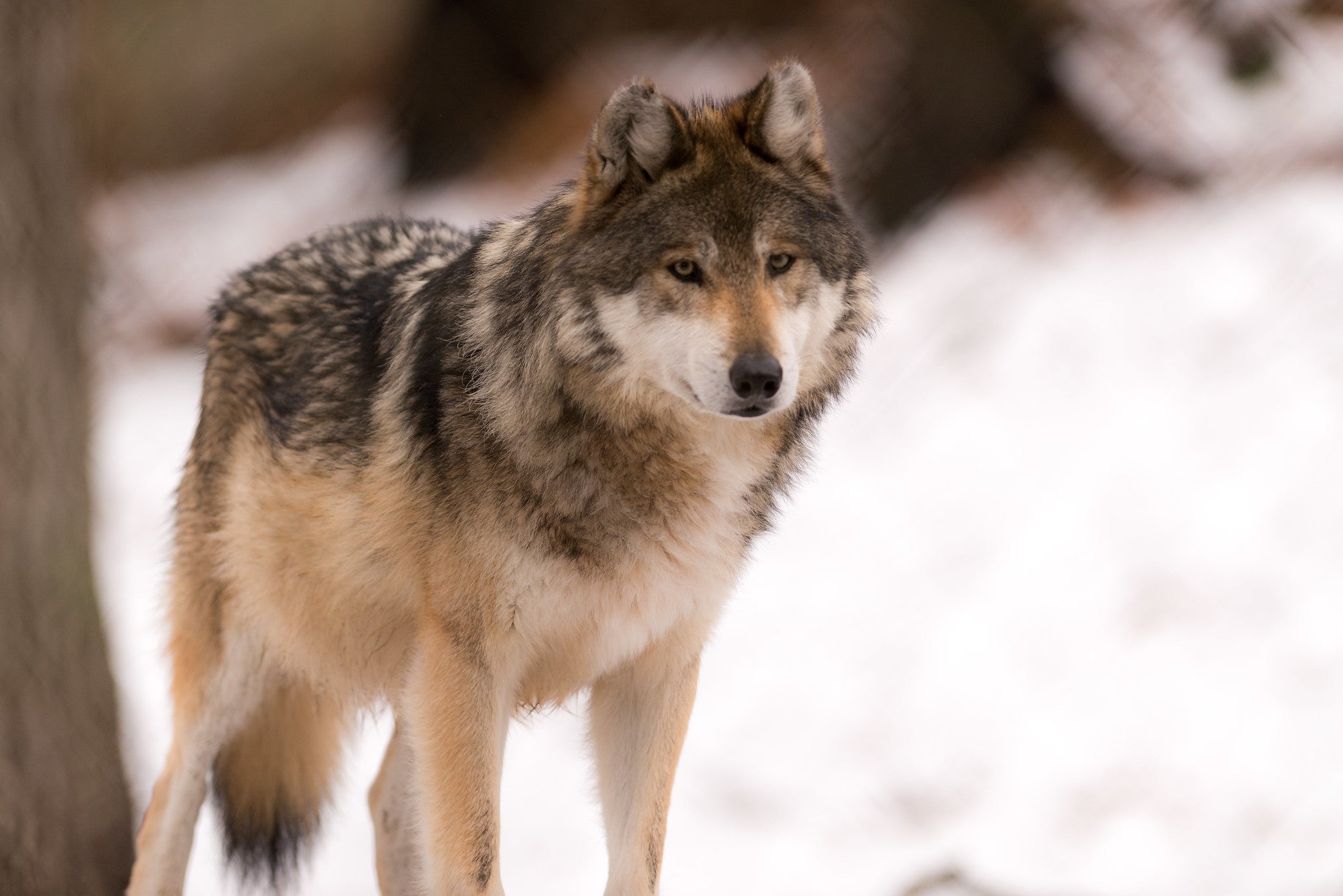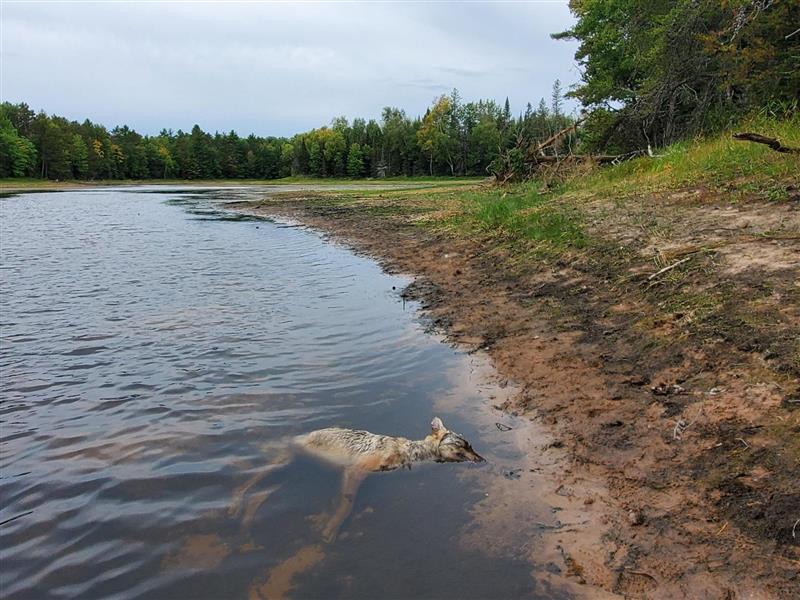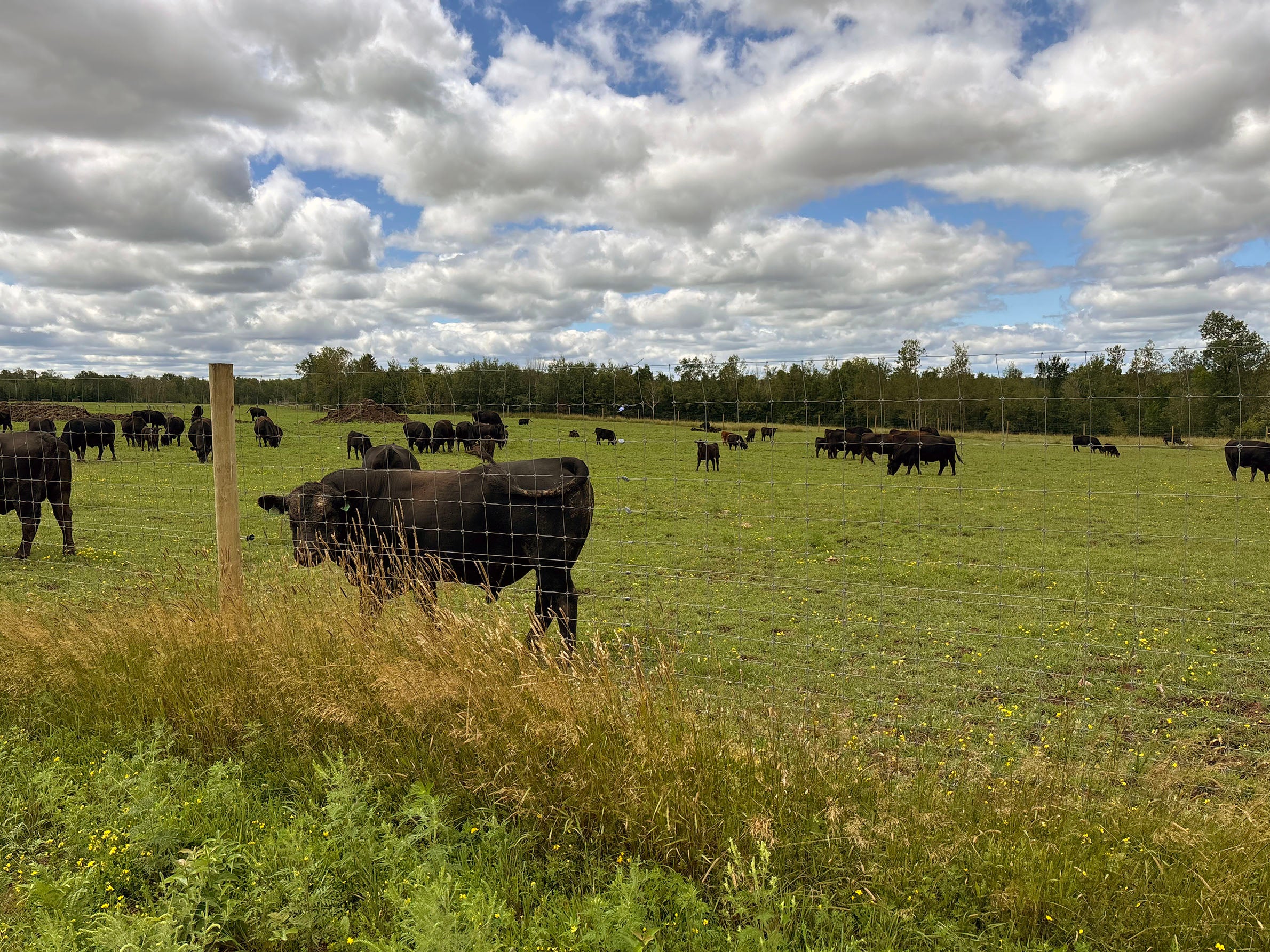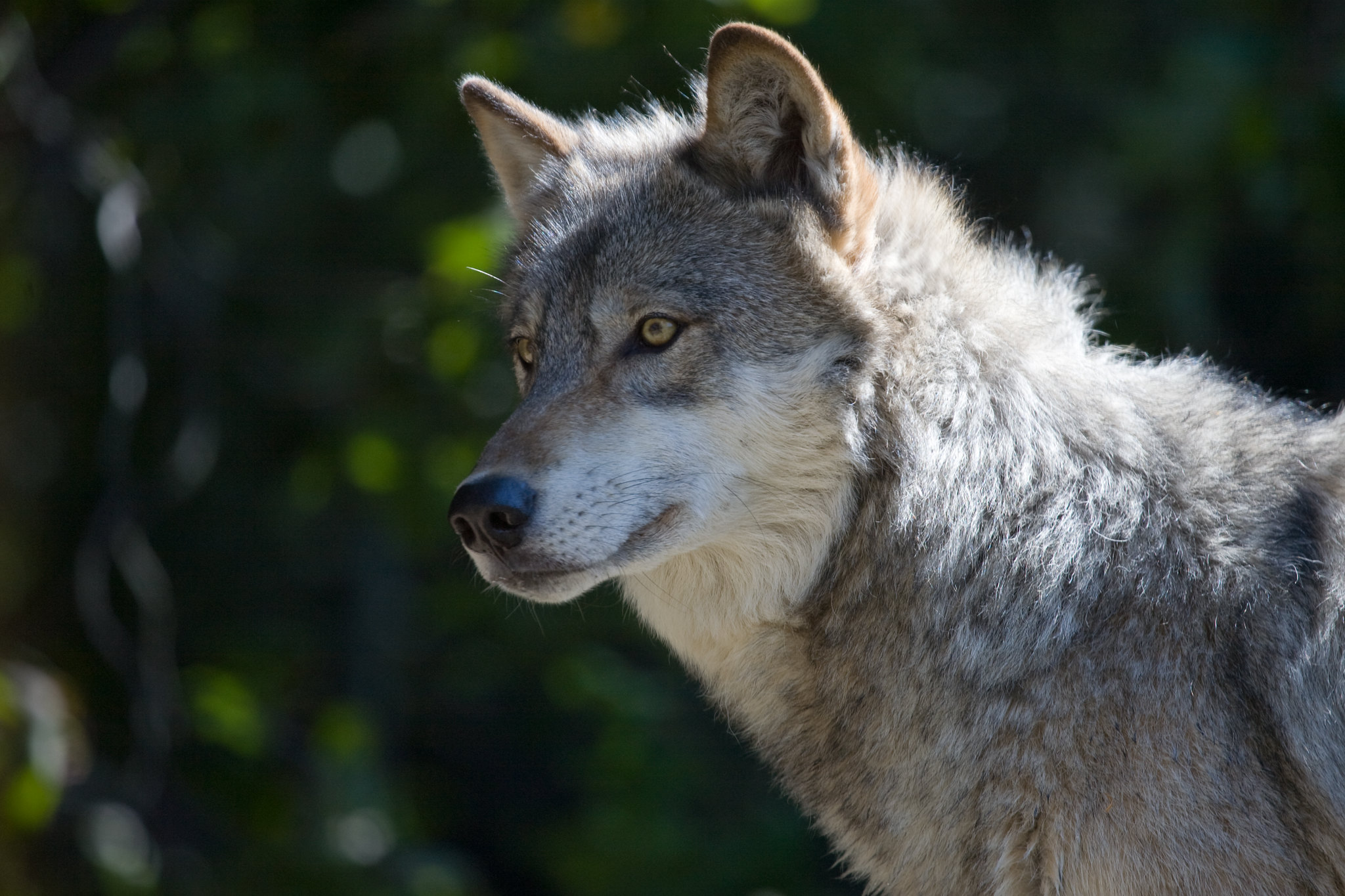Wisconsin’s wolf hunt has been on hold since a Dane County judge issued a temporary injunction in October stopping the season that was set to begin Nov. 6.
The order came after a coalition of wildlife advocacy and animal protection groups filed a lawsuit arguing, in part, that the hunt is illegal because it relies on outdated regulations and a management plan that hasn’t been updated since 2007.
But that lawsuit is only one of several efforts to stop the hunt from happening.
Stay informed on the latest news
Sign up for WPR’s email newsletter.
Six Wisconsin tribes have also sued in federal court. They argue their treaty rights are being violated under state wolf management, pointing to February’s court-ordered hunt. State-licensed hunters killed 218 wolves in less than three days, harvesting the tribes’ share and exceeding the overall 200-wolf quota.
And another lawsuit filed by national wildlife and environmental groups seeks to restore protections for wolves nationwide.
Hunting advocates say the state should act quickly to ensure a hunt can happen before the end of the season in February.
Here’s the status of various legal challenges to Wisconsin’s hunt and the wolf’s status.
A state judge put the hunt on hold, and Wisconsin’s response remains unclear
Dane County Judge Jacob Frost agreed with groups that the Wisconsin Department of Natural Resources failed to craft permanent rules to carry out state law that mandates a season. He ordered the agency to update its regulations and wolf management plan before a hunt can resume.
The DNR, which is being represented by the Wisconsin Department of Justice, hasn’t appealed the ruling. Neither the DNR nor the DOJ has made clear whether they intend to appeal.
DOJ spokesperson Samantha Standley said in a statement that the DNR is working with the court to reach a final order in the case as soon as possible and will “continue to assess our options once a final order is obtained.”
In the meantime, DNR spokesperson Sarah Hoye said the agency is working on its draft wolf management plan and proposed rules for implementing the state’s wolf hunt law. It’s unlikely both the updated regulations and wolf management plan would be finished before the season ends in February. The DNR currently aims to submit a final plan to its policy board in June.
A status conference in the case is set for Dec. 15 in Dane County Circuit Court.
Animal protection groups say they will fight any appeal to the ruling, including Animal Wellness Action, one of the groups that brought the lawsuit.
“We believe the decision made by Judge Frost was far and away what should have been done,” said Paul Collins, Wisconsin director of Animal Wellness Action. “The DNR has had a decade now to put permanent rules in place. They have refused to, and they’ve also been dragging their feet regarding an updated management plan.”
Hunters like Mike Brust, legislative liaison for the Wisconsin Bowhunters Association, are disappointed the state has not yet appealed the ruling.
“(The wolves) need to be managed, and the only real way we have to do that is hunting and trapping,” said Brust.
Even if the Dane County judge’s order was overturned, the wolf hunt would face another challenge from tribes, this one in federal court.
A federal judge heard arguments for stopping the hunt, but held his ruling because of the state court decision
In late October, a federal judge decided not to issue an injunction to halt Wisconsin’s wolf hunt in the tribes’ case while the state court’s order remains in place. However, U.S. District Judge James Peterson said he would be prepared to issue a ruling if anything changed.
Tim Preso, an Earthjustice attorney representing tribes, said they’re monitoring the state case closely.
“The bottom line is that we are going to ask for relief from the federal court to stop this wolf hunt from going forward during the fall season, if anything changes with respect to the state court order that has stopped the wolf hunt so far,” said Preso.
Ojibwe tribes in Wisconsin can declare up to half the share of the wolf harvest under treaty rights that have been upheld in federal court rulings.
They’ve argued that actions by the Natural Resources Board and the DNR have undermined treaty rights that entitle tribes to an equal share of resources that can be harvested. In addition to the February hunt, they argue the DNR’s policy board set a quota of 300 wolves in August with the goal of nullifying the tribes’ share.
However, both challenges to Wisconsin’s hunt may be moot if protections for wolves are restored in another federal case.
Another federal lawsuit is asking a judge to restore federal protections for wolves
In mid-November, a federal judge heard arguments on whether to uphold or strike down the Trump administration’s decision to remove the wolf from the federal endangered species list in January.
The Biden administration has defended the decision in court even as states like Montana and Idaho have enacted aggressive hunting laws to drastically reduce the wolf population. Federal officials have argued wolves are resilient, and they will weigh whether any protections are necessary as part of ongoing monitoring.
Earthjustice is also representing wildlife advocates in that case. They argue the Trump administration wrongly concluded that wolves have recovered due to the growth of wolf populations in the Great Lakes region, Rocky Mountains and Pacific Northwest.
“We just don’t agree with that judgment and think that there’s a broader opportunity to restore biodiversity and wolf recovery around the country,” Preso said.
The judge has not yet issued a ruling in the case, but a decision could come any day.
[[{“fid”:”1455951″,”view_mode”:”embed_portrait”,”fields”:{“alt”:”Gray wolf pups emerging from a den”,”title”:”Gray wolf pups emerging from a den”,”class”:”media-element file-embed-landscape media-wysiwyg-align-center”,”data-delta”:”2″,”format”:”embed_portrait”,”alignment”:”right”,”field_image_caption[und][0][value]”:”%3Cp%3EGray%20wolf%20pups%20emerging%20from%20den.%26nbsp%3B%3Cem%3EHilary%20Cooley%2F%20U.S.%20Fish%20and%20Wildlife%20Service%3C%2Fem%3E%3C%2Fp%3E%0A”,”field_image_caption[und][0][format]”:”full_html”,”field_file_image_alt_text[und][0][value]”:”Gray wolf pups emerging from a den”,”field_file_image_title_text[und][0][value]”:”Gray wolf pups emerging from a den”},”type”:”media”,”field_deltas”:{“2”:{“alt”:”Gray wolf pups emerging from a den”,”title”:”Gray wolf pups emerging from a den”,”class”:”media-element file-embed-landscape media-wysiwyg-align-center”,”data-delta”:”2″,”format”:”embed_portrait”,”alignment”:”right”,”field_image_caption[und][0][value]”:”%3Cp%3EGray%20wolf%20pups%20emerging%20from%20den.%26nbsp%3B%3Cem%3EHilary%20Cooley%2F%20U.S.%20Fish%20and%20Wildlife%20Service%3C%2Fem%3E%3C%2Fp%3E%0A”,”field_image_caption[und][0][format]”:”full_html”,”field_file_image_alt_text[und][0][value]”:”Gray wolf pups emerging from a den”,”field_file_image_title_text[und][0][value]”:”Gray wolf pups emerging from a den”}},”link_text”:false,”attributes”:{“alt”:”Gray wolf pups emerging from a den”,”title”:”Gray wolf pups emerging from a den”,”class”:”media-element file-embed-portrait media-wysiwyg-align-right”,”data-delta”:”2″}}]]
Why is hunting wolves such a polarizing issue?
Hunters say it’s their right under the law to control the state’s growing wolf population. They, along with farmers and hound owners, have pointed to increasing conflicts between wolves, pets and livestock as the population had grown to around 1,100 wolves prior to the February hunt. They’ve also expressed concerns that the predators are reducing the deer herd in wolf range.
The DNR says 70 wolves have been killed so far this year by federal wildlife managers and landowners due to wolf conflicts. The state has paid out around $3 million in wolf depredation payments since 1985.
State wildlife managers say targeted lethal management is more effective than a wolf hunting and trapping season when addressing livestock conflicts. The DNR also contends deer herds in northern Wisconsin are increasing alongside the wolf population.
Wolf advocacy groups, tribes and conservationists oppose the state’s wolf hunt law that mandates a season. They argue it prevents the DNR from managing the population based on the best available science.
Wolf advocates contend the animals haven’t recovered to their historic range as Wisconsin once had up to 5,000 wolves. Meanwhile, Ojibwe tribes have said they view the wolf as a brother and have declined to harvest the animal, holding that their fate is intertwined with wolves.
Researchers and conservation groups have feared the February wolf hunt and the fall season could threaten the sustainability of wolves. They’ve highlighted uncertainty over the hunt’s effects on reproduction since it occurred during the animal’s breeding season, as well as illegal poaching that could have further drawn down numbers.
Wisconsin Public Radio, © Copyright 2025, Board of Regents of the University of Wisconsin System and Wisconsin Educational Communications Board.
